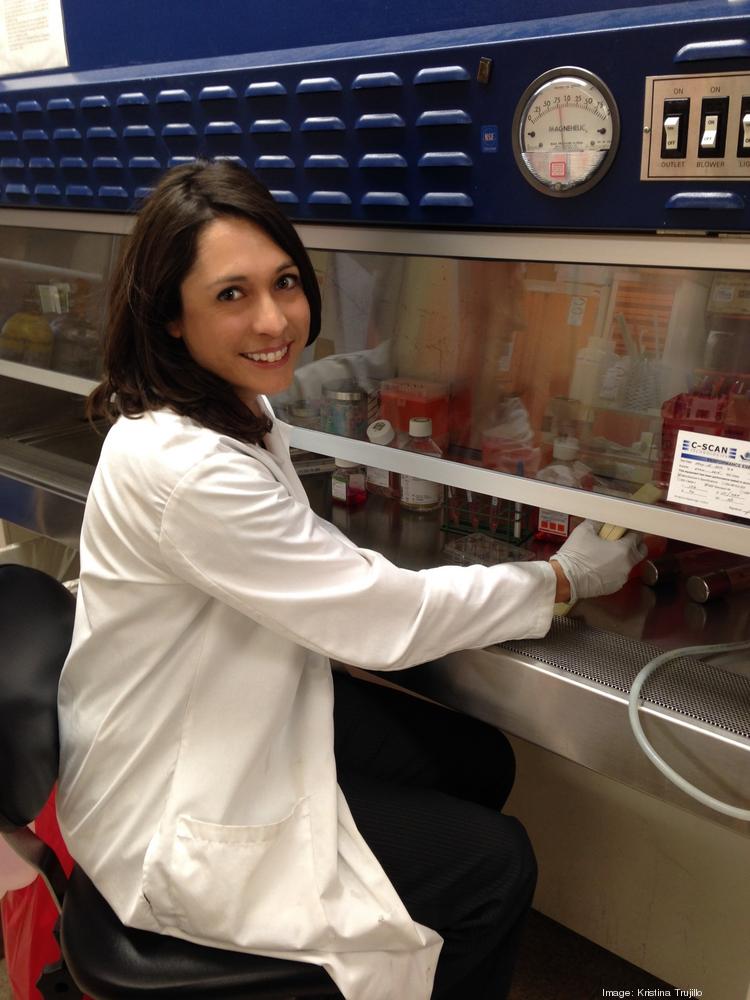Molecular biologist Kristina Trujillo is determined to help physicians identify and treat Alzheimer’s disease before the onset of debilitating cognitive decline.
Trujillo, who holds a doctorate in molecular biology from New Mexico State University, is CEO of Albuquerque-based T-Neuro Pharma. With help from the New Mexico Lab-Embedded Entrepreneur Program (LEEP), her company is developing a simple blood test to determine the presence of Alzheimer’s disease and a treatment to prevent its development and stop its progress.
She is one of three technology entrepreneurs in New Mexico LEEP’s first two-year fellowship cohort, which started early this year. The program embeds “deep tech” entrepreneurs—people developing solutions to existential problems like climate change and disease—at Los Alamos National Laboratory, where they work alongside scientists and mentors to advance, test and validate their innovations on a path to making them marketable products.
Trujillo, who began her career as a cancer and metabolism researcher and professor at the University of New Mexico Health Sciences Center, was an Entrepreneur in Residence at a San Francisco venture capital firm before teaming up with Cedars-Sinai Medical Center researcher Chris Wheeler, PhD, to develop a diagnostic test. The T-Track Diagnostic serves as an alternative to the spinal tap or PET scan tests now performed to determine the presence of Alzheimer’s in a living person. Trujillo hopes the test can eventually be part of a patient’s annual blood screening.
Nearly half a million Americans are diagnosed with Alzheimer’s disease every year, and that number is expected to continue growing as the population ages.
Alzheimer’s research has long focused on amyloid beta, a peptide believed to cause the plaque that builds on the brain and causes the progressive loss of memory and other brain functions. Trujillo’s approach aligns with Wheeler’s research, which theorizes that plaques may be a disease symptom rather than cause. Wheeler’s research suggests that plaques occur when the immune system’s T cells attack neurons and that preventing or slowing Alzheimer’s disease requires stopping that action.
T-Neuro Pharma’s treatment will not reverse damage, Trujillo said, but it can prevent the onset of symptoms and prevent further decline in people who already have the disease. Together with the T-Track diagnostic, which will detect the disease early, the treatment will stop the disease before extensive damage has been done to the brain.
Freedom to research
Working with New Mexico LEEP has exceeded Trujillo’s expectations. “I was assuming they would help with the technical aspects and help me optimize my assay, make it better for the diagnostic,” she said. “They are doing that 100 percent, but what I didn’t realize was all of the mentorship and all of the extras that come with it.”
In addition to providing technical support and access to expertise and facilities at Los Alamos and Sandia national laboratories along with a network of mentors, customers, and investors, the New Mexico LEEP program offers a generous stipend, health insurance, and travel reimbursement so participants can build their startup in New Mexico.
Twice a month, Trujillo and her cohort meet with mentors who teach them how to pitch, fundraise, and write executive summaries. “One of the things I’m learning is that scientists love to explain how our technology works,” she said. “But investors and purchasers are more interested in the benefits and applications of the technology.”
Applications
New Mexico LEEP accepts applications each year, typically from February through mid-April, for cohorts that run from the following January to December of the next year. LEEP offers informational webinars during the application period. Find more information and register for a webinar here.
Learn more about T-Neuro Pharma.

